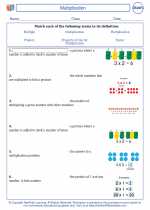Lunisolar Calendar
A lunisolar calendar is a calendar system that is based on both the lunar and solar cycles. This type of calendar is used in many traditional cultures and religions to determine the dates of important holidays, festivals, and agricultural events.
Lunar and Solar Cycles
The lunar cycle is the time it takes for the moon to complete one orbit around the Earth, which is approximately 29.5 days. The solar cycle refers to the Earth's orbit around the sun, which is about 365.25 days.
Key Features of a Lunisolar Calendar
In a lunisolar calendar, the months are based on the lunar cycle, while the years are based on the solar cycle. To reconcile the two cycles, intercalary months or days are added periodically to keep the calendar in sync with the seasons.
Examples of Lunisolar Calendars
Some examples of lunisolar calendars include the Hebrew calendar, the Chinese calendar, and the Hindu calendar. These calendars are used to determine the dates of religious holidays, agricultural festivals, and other important events in these cultures.
Study Guide Questions:
- What is a lunisolar calendar and how is it different from other calendar systems? Explain with examples.
- How are the lunar and solar cycles incorporated into a lunisolar calendar? Provide specific details.
- What are the key features of a lunisolar calendar and why are intercalary months or days added?
- Give examples of cultures or religions that use a lunisolar calendar and explain how it is important in their traditions and practices.
- Discuss the significance of lunisolar calendars in determining the dates of religious and cultural events.
◂Math Worksheets and Study Guides Fifth Grade. Multiplication
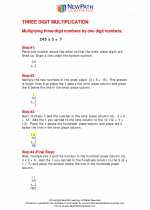
 Worksheet/Answer key
Worksheet/Answer key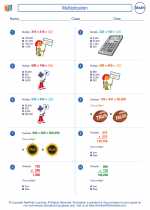
 Worksheet/Answer key
Worksheet/Answer key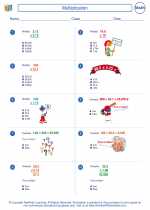
 Worksheet/Answer key
Worksheet/Answer key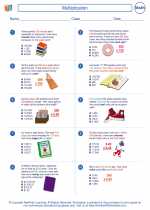
 Worksheet/Answer key
Worksheet/Answer key
 Worksheet/Answer key
Worksheet/Answer key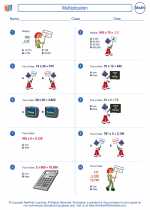
 Worksheet/Answer key
Worksheet/Answer key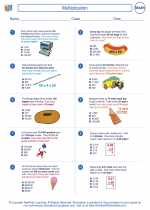
 Worksheet/Answer key
Worksheet/Answer key
 Vocabulary/Answer key
Vocabulary/Answer key